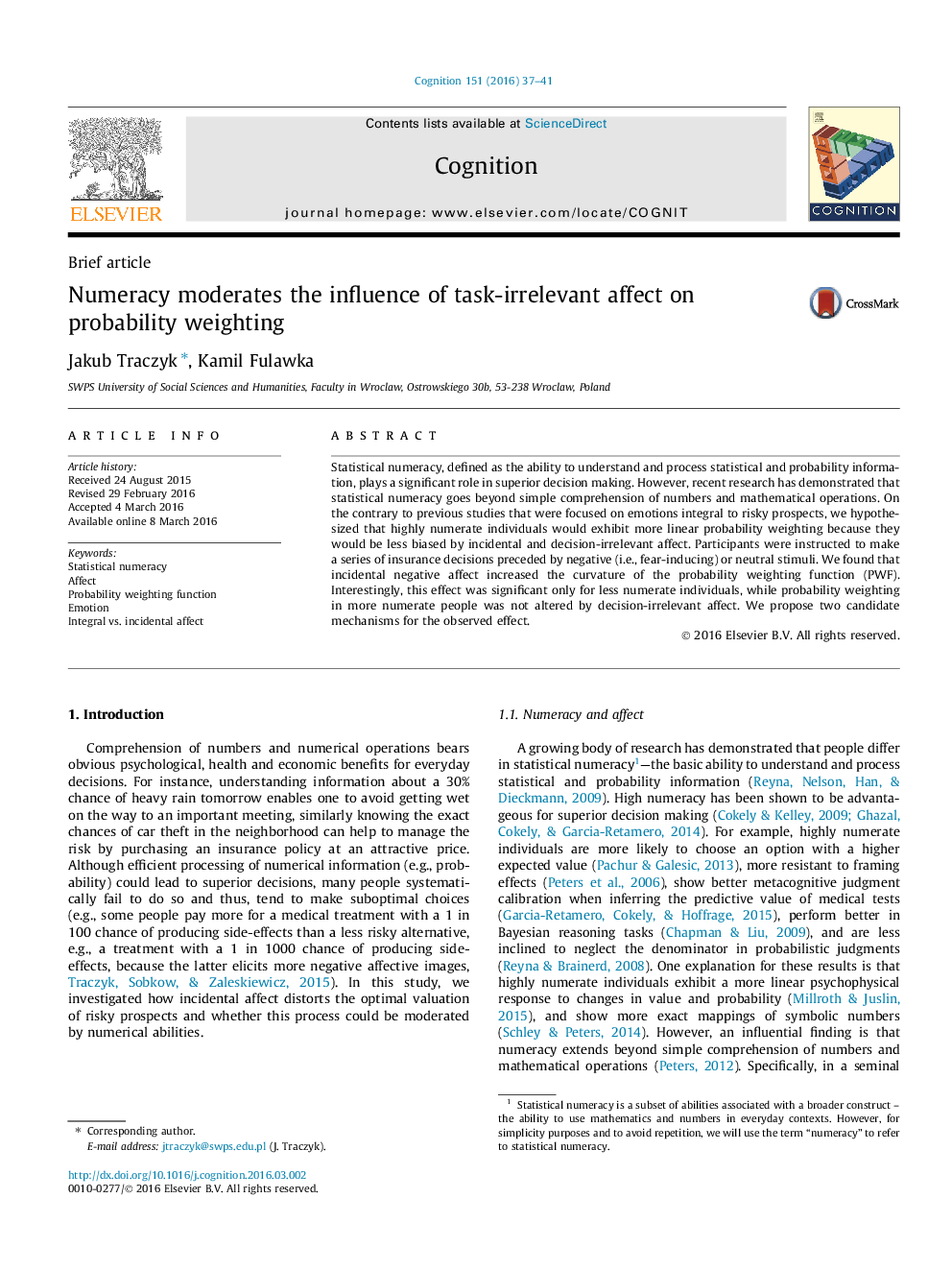| Article ID | Journal | Published Year | Pages | File Type |
|---|---|---|---|---|
| 926414 | Cognition | 2016 | 5 Pages |
•We tested whether decision-irrelevant incidental affect alters probability weighting.•Negative affect influenced the curvature of the probability weighting function.•Numeracy moderated this relationship.•Less numerate individuals exhibited more biased probability weighting.•Affect did not distort probability weighting in more numerate individuals.
Statistical numeracy, defined as the ability to understand and process statistical and probability information, plays a significant role in superior decision making. However, recent research has demonstrated that statistical numeracy goes beyond simple comprehension of numbers and mathematical operations. On the contrary to previous studies that were focused on emotions integral to risky prospects, we hypothesized that highly numerate individuals would exhibit more linear probability weighting because they would be less biased by incidental and decision-irrelevant affect. Participants were instructed to make a series of insurance decisions preceded by negative (i.e., fear-inducing) or neutral stimuli. We found that incidental negative affect increased the curvature of the probability weighting function (PWF). Interestingly, this effect was significant only for less numerate individuals, while probability weighting in more numerate people was not altered by decision-irrelevant affect. We propose two candidate mechanisms for the observed effect.
